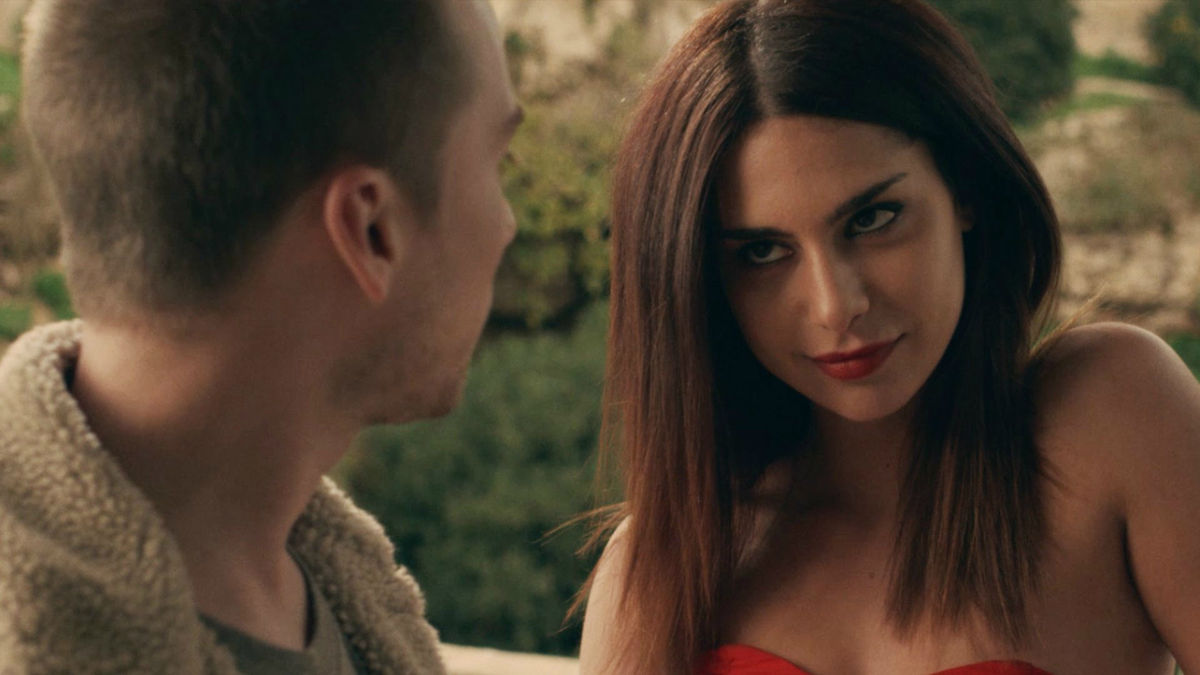My list lately seems stuffed with movies I’ve finally caught up with even though I have no idea why I originally added them, and here’s another one. I’m (mostly) glad I did – it does some good and subtle world-building and ascends dramatically right to the final scene to stitch that world-building pretty seamlessly to an emotional story.
Evan (Lou Taylor Pucci) buries his mother after taking care of her during a long illness, drinks with his best friend as he tries to deal with the trauma and gets in a brutal barroom fight with a knuckle-dragger who accuses Evan of looking at his girlfriend.
As he makes his way back home with his best friend, I thought Spring was going to be one of those poverty porn urban American domestic dramas – I hadn’t even completely remembered it was a horror movie. But in short order, Evan has booked a plane ticket to Italy, put on a backpack and he’s off, ostensibly to lay low from any trouble arising from the barfight (especially when the knuckle dragger and his goons have discovered where Evan lives).
He finds himself in a picture postcard seaside town where cobbelstone streets and pastel painted terrances hug the sea around an idyllic, rocky beach along with two boisterous British lads he’s fallen in with while in Rome. But instead of moving on with them when they’ve had enough he decides on a dime to stay in bed and remain in town longer.
He gets a job picking fruit with a kindly local farmer and zeroes further in on the beautiful student Louise (Nadia Hilker) he’s already seen around the place, working all the charm he can muster to win her over.

Their relationship blossoms, and it’s only then – and only in the merest of snippets – that we (and eventually Evan) see the secret Louise is hiding. We’ve already seen her desperately run to bathrooms, sweating and panicked with patches of her skin changing colour and texture before her eyes, to give herself an injection we assume is holding back some horrible disease. But it gets worse when we see Louise occasionally sprout hair, tentacles or other animalistic limbs or accouterments, eventually attacking townspeople.
About three quarters of the way through, when Evan sees too much and she has to come clean, the only real misstep of the movie crops up when Evan accepts Louise’s otherworldy reality way too readily and casually, professing instead that he’s so in love with her they’ll work around it.
As more truths about Louise’s ‘condition’ emerge (as well as variously turning into killer animals she’s also centuries old), Evan tries to come up with a way they can stay together before the next cycle of her constant life of change takes her away from him forever, and it gets all a lot more heartfelt. The final scene of the sun rising over the ruins of Pompeii had a stillness and beauty you don’t often see in horror.
In fact it’s a good metaphoer for the movie as a whole. Directors Justin Benson and Aaron Moorhead (from a script by Benson) are as interested in the sense of romance and human connection as they are the blood, transmutation and occasional scares, and they enmesh the two together as much as it’s probably possible to do.
And because it’s all in such a picturesque setting, it gives the story a very enclosed and digestible sense of geography, something I’m coming to understand is critical more and more in the genre lately (for another recent example, see John Carpenter’s The Fog).
They’re also not afraid to change tone without losing the sense of a cohesive whole. Pucci isn’t a natural comedian but there are as many scenes and lines that are breezily funny as there are others that are horrifying and car-crash fascinating.
I’ve heard it described as Richard Linklater meets David Cronenberg, and that hilarious idea is entirely applicable in the best possible way here.
Subscribe to FIB’s Weekly Alchemy Report for your weekly dose of music, fashion and pop culture news!






